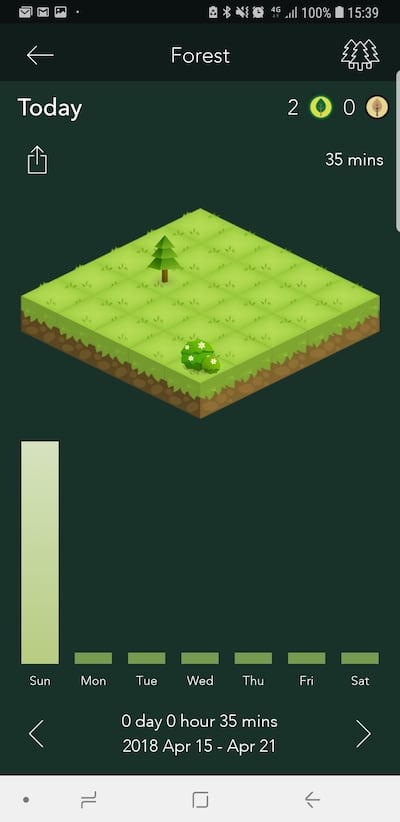Every week apps are launched that promise to make us more productive, to streamline workflows, bolster our efficiency and somehow turbocharge our day. The nagging sense that we are not getting enough done prompts us to seek magic solutions. Technology has made countless attempts to come to our rescue – with varied results.
Among the current crop of acclaimed apps are a time-tracking aid called Forest, a to-do list manager called Taskade, and Notion, a project management tool. But the list of apps that seek to pave our way to a better-organised, happier future is a mile long.
"There are so many," says Francesco D'Alessio, who runs a popular YouTube channel called Keep Productive. "It's ironic that I spend much of my spare time reviewing productivity apps. But it's because I know there's a need for them." That perceived need is greater now than ever before. Back in the early 1970s, the Swedish economist Staffan Linder coined the phrase "harried leisure class" to describe people in wealthier countries making futile attempts to make their time more productive. But 21st century life involves many more competing pressures on our time.
“Things are speeding up around us,” says Ed Lamont, co-founder of Next Action Associates, a consultancy that helps individuals and businesses improve productivity. “We’re under tremendous pressure to do more to keep up. But our core human needs, such as being loved and respected, don’t respond very well to that speeding up.”
When apps fail to deliver
The way we use productivity apps tends to reflect that very human frustration, as we install them, try them and then quickly reject them when they seem to fail us. That “failing”, according to Lamont, stems from their attempts to be all things to all people.
"They're often overbuilt by people who are already pretty organised," he says. "So they'll kit them out with all these tools, and suddenly it's a three-minute operation to enter something into your system. Which you might do if you have the time, but you certainly won't if you're busy."
D’Alessio concurs that complexity can present problems. “You can spend years learning the major productivity apps and how they work structurally,” he says, “but I believe that once you’ve found the software you need, you should spend a minimal amount of time actually using it, and focus on doing the work.”
On his YouTube channel, D’Alessio conveys huge enthusiasm for the capacity of these apps to achieve order – an enthusiasm shared by his followers and commenters – but there’s a sense that the most enthusiastic users of popular apps such as Todoist and Trello are very organised by their nature; they take to new systems and structures easily and derive an aesthetic pleasure from seeing their lives presented in a very neat, ordered fashion.
"It's true that productivity apps are often just a crutch for people, and you even see people referring to the 'cult' of productivity," says D'Alessio. "But I believe that there's so much choice out there that it's almost silly not to use one."
With such a wide range available, from the minimalist, uncomplicated approach of Blink to the "time-boxing" strategy used by FocusList, there's a good reason to suppose that there's something out there for everyone. But Lamont believes that people's hopes tend to be set too high and, crucially, we have a resistance to change that apps cannot overcome.
“It’s like playing the piano,” he says. “You have to groove new pathways in your brain, and that’s a process which takes time. Only then can the technology really help. I went through the same thing in 1995 when I got my first Psion organiser. It was an amazing tool, and I was convinced that it would sort everything out. But I just filled it up with rubbish and it didn’t help me.”
The digital detox paradox
That idea that digital devices almost conspire against our attempts to get things done is reflected in the recent popularity of apps that use persuasion to help us focus on the things that matter. Moment (for iOS) and QualityTime (for Android) track how much time you spend looking at your phone and then present you with the incontrovertible evidence.
Hold, developed by a team at Copenhagen Business School, offers money-off vouchers, free coffees and cinema tickets as a reward for students in certain European countries that don't use their smartphone.
The aforementioned Forest, riding high in many national app charts, encourages you to leave your device alone for 25-minute periods by growing virtual trees in your very own virtual forest. Dare to look at your phone during that period, and a tree withers and dies.
“They’re a nice addition,” says D’Alessio. “But then you have your note taker, your to-do list app, your calendar app, and now this whole other breed of habit trackers, when you really should be keeping it minimal.”
Lamont agrees. "There's recent research which suggests that a lot of the productivity apps are slowing people down," he says, "particularly the way you have to switch constantly between them, which is deadly for productivity. But apps for your phone to help you not to use your phone? That's where it starts to get really really weird."
The techniques that have been proven to assist us with managing chores tend to sit outside the world of technology: things such as GTD® (endorsed by Lamont), Kanban boards, or the Pomodoro method, which forms the basis of the Forest app.
D’Alessio notes that as machine learning techniques improve, apps will gain the ability to help us directly. “Initially, they will prompt us and learn from us,” he says, “before moving into an area where they can complete errands.” But for now, productivity apps will only really put out what you put in. “What people want,” says Lamont, “is for it to spit out a ticket saying: ‘Of the 300 things you have to do, this is the right one’. But as the saying goes, a fool with a tool is still a fool.”
Five apps that are actually helpful
DubaiNow
This is a game changer for people in Dubai. It completely cuts down on time spent on life admin – you can pay your Dewa, du, Etisalat and municipality bills, pay all traffic fines, top up your Salik, parking times and NOL card and even track Dubai airport’s departures and arrivals. You can also track the status of visa applications, view the Rera Rental Increase calculator and renew trade licences.
MOI UAE
The Ministry of Interior’s app is useful for those living across the UAE – offering services such as vehicle registration, licencing, traffic fines, visas, police clearance certificates and more, all at your fingertips, in one place.
Insight Timer
This free meditation app offers guided meditation as well as mindfulness tips to help you find a sense of inner calm (which will then make you more productive). The app is particularly good for those who have difficulty sleeping, with its selection of relaxation meditations. There are many categories of meditation to choose from too, including timed, guided, and even just talks. There is also a social component that allows app users to find friends who can “meditate with you” that are are close to your location.
Momentum Habit Tracker
Here is an app “built exclusively for Apple’s ecosystem” that is based on Jerry Seinfeld’s productivity secret: “don’t break the chain”. By this he meant that every day that you complete a habit, the chain becomes longer and you become less likely to quit. It sends you daily reminders to make sure you don’t break habits, sets you weekly targets and lets you skip habits – if you’re travelling, for instance – without breaking the chain.
Remember The Milk
Never forget to buy milk again with this to-do list app that connects all of your devices and integrates with Gmail, Twitter, Evernote and more. You can be reminded via email, text, Twitter or mobile notifications, and you can give tasks due dates and tags and put them on repeat.



